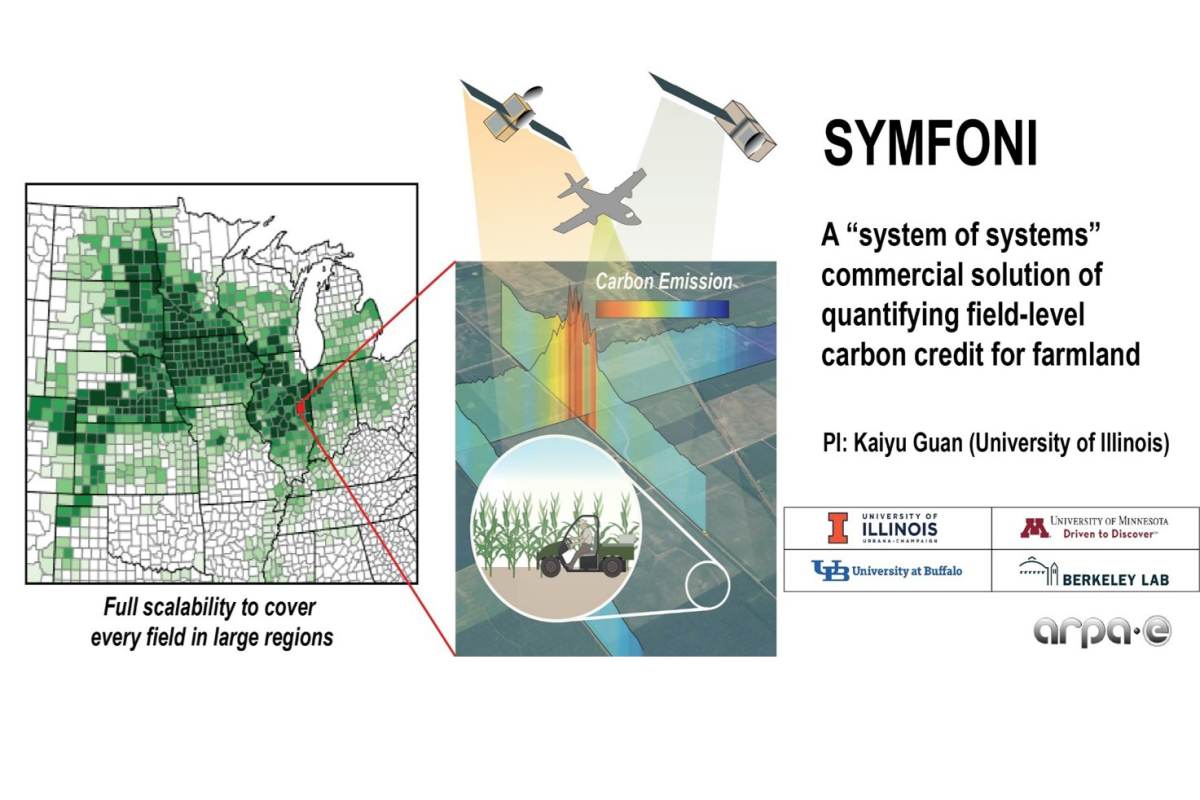Kumar collaborates to study carbon credits for farmers

Regents Professor and William Norris Endowed Chair Vipin Kumar is part of a project team, spearheaded by the University of Illinois, that has been awarded $4.5 million from the U.S. Department of Energy’s Advanced Research Projects Agency-Energy (ARPA-E) through its “Systems for Monitoring and Analytics for Renewable Transportation Fuels from Agricultural Resources and Management” (SMARTFARM) program. The funding will be used to calculate farm-scale carbon credits, allowing individual farmers to understand the value of their land and practices towards carbon trading markets. Kumar will be bringing his data mining expertise to the project.
“We are developing novel technology to enable a thriving market-based solution to promote agricultural sustainability. Our developed technology will enable a carbon credit market, which will incentivize farmers to adopt management practices that benefit the soil, the environment, and then reward themselves. For example, if a certain practice sequesters more carbon, farmers can reduce their carbon emissions and earn financial rewards. These credits can be collected and then used in the open market to offset others toward meeting lower carbon-emission goals,” says Kaiyu Guan, Blue Waters Professor in the Department of Natural Resources and Environmental Sciences and National Center for Supercomputing Applications (NCSA) at Illinois and principal investigator on the multi-institutional project that also includes the University of Minnesota, USDA-ARS, the University of Buffalo, and Lawrence Berkeley National Lab.
The project, named “SYMFONI,” allows accurate and rapid field-level quantification of carbon intensity for every individual field across the U.S. and can be seamlessly scaled up to the global scale. This is made possible through the integration of field-based observations with satellite and aerial hyperspectral data, physics-guided deep learning, mobile soil sensing, and supercomputing. Guan says the system builds a generic framework that will flexibly integrate newer sensor technologies as they become available, meaning the output will continue to improve over time.
Importantly, the SMARTFARM project is tasked with delivering commercial products that will enable stakeholders to calculate the value of various ecosystem services related to crop and land management decisions. To achieve ARPA-E’s “technology-to-market” goal and commercialize the project’s results, the team has partnered with Aspiring Universe, a tech spin-off from the University of Illinois that aims to de-risk and sustain modern agriculture for humanity.
The project is in line with ARPA-E’s SMARTFARM goals, which include development of technologies to bridge the data gap in the biofuel supply chain by quantifying feedstock-related greenhouse gas emissions and soil carbon dynamics at the field level. These technologies will allow for improved efficiency in feedstock production and enable new ag-sector carbon removal and management opportunities.
Edited from original article written by Lauren Quinn for the University of Illinois College of Agricultural, Consumer and Environmental Sciences